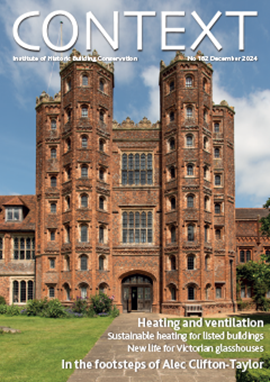Information management framework
The Gemini Principles, published by the Centre for Digital Built Britain (cdbb) in December 2018 suggests that the term 'information management framework' (IMF) refers to; 'All that is necessary to enable effective information management across the built environment. It addresses secure, resilient interoperability, which is fundamental for creation of a national digital twin. An intrinsic element of the Construction Sector Deal supporting HM Government’s Industrial Strategy.'
Digital Twin Toolkit, Developing the business case for your digital twin, published by cdbb in February 2021, states:
|
The mission of the National Digital Twin programme is to enable the National Digital Twin, an ecosystem of connected digital twins that will deliver better outcomes from the built environment. The Information Management Framework currently under development will be the underpinning structure of the National Digital Twin, defining a common language by which digital twins of the built and natural environment can communicate securely and effectively to support improved decision taking by those operating, maintaining and using built assets and the services they provide to society. CDBB published in May 2020 the Pathway towards an Information Management Framework report, which proposes three building blocks to form the IMF:
|
Skills and Competency Framework, Supporting the development and adoption of the Information Management Framework (IMF) and the National Digital Twin, published by the Centre for Digital Built Britain (CDBB) in 2021, defines an Information Management Framework (IMF) as: ‘The technical rulebook and handbook to develop a Data Commons to connect digital twins nationally by an FDM (Foundational Data Model) (relationship creator, ontology and taxonomy), RDL (Reference Data Library)(definitions) and IA (integration).'
[edit] Related articles on Designing Buildings
IHBC NewsBlog
SAVE celebrates 50 years of campaigning 1975-2025
SAVE Britain’s Heritage has announced events across the country to celebrate bringing new life to remarkable buildings.
IHBC Annual School 2025 - Shrewsbury 12-14 June
Themed Heritage in Context – Value: Plan: Change, join in-person or online.
200th Anniversary Celebration of the Modern Railway Planned
The Stockton & Darlington Railway opened on September 27, 1825.
Competence Framework Launched for Sustainability in the Built Environment
The Construction Industry Council (CIC) and the Edge have jointly published the framework.
Historic England Launches Wellbeing Strategy for Heritage
Whether through visiting, volunteering, learning or creative practice, engaging with heritage can strengthen confidence, resilience, hope and social connections.
National Trust for Canada’s Review of 2024
Great Saves & Worst Losses Highlighted
IHBC's SelfStarter Website Undergoes Refresh
New updates and resources for emerging conservation professionals.
‘Behind the Scenes’ podcast on St. Pauls Cathedral Published
Experience the inside track on one of the world’s best known places of worship and visitor attractions.
National Audit Office (NAO) says Government building maintenance backlog is at least £49 billion
The public spending watchdog will need to consider the best way to manage its assets to bring property condition to a satisfactory level.
IHBC Publishes C182 focused on Heating and Ventilation
The latest issue of Context explores sustainable heating for listed buildings and more.















